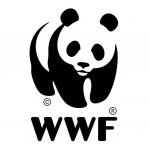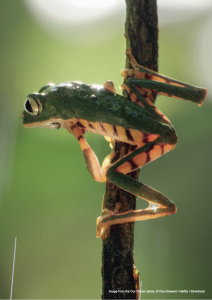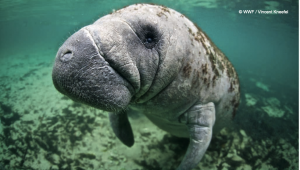Community Partner Spotlight: World Wildlife Fund (WWF)
The World Wildlife Fund (WWF) offers social impact internships to undergraduate MIT students looking to engage in a global campaign to protect biodiversity and environmental health. Learn about their work and their partnership with PKG students from site supervisor Emily Moberg!
How would you describe the primary role of the World Wildlife Fund (WWF) in the community?

The World Wildlife Fund (WWF) is the world’s leading conservation organization. We work in countries around the world to build a future in which humans live and thrive on a healthy, biodiverse planet. We work both in specific landscapes–from the Amazon to the Coral Triangle, from Madagascar to the Arctic–and on specific threats to nature, including: climate change, poaching and illegal trade, and habitat loss from agriculture. To do this work, we engage with companies, governments, communities, other non-profits, and the media.
What are some projects and/or major developments your organization has been working on lately?
WWF works on so many exciting projects and initiatives, many of which can be found in our press releases. But, I picked a few I thought were interesting below!
- WWF recently released our 2020 Living Planet Report, which showed that global population sizes of mammals, fish, birds, reptiles, and amphibians declined by 68% since 1970, with some local areas being hit much harder. The report helps define the problem we need to solve and raised awareness of these issues.
- WWF joined the Walmart Foundation, McDonald’s, and Cargill to launch a million-acre grazing initiative to help restore grasslands in the US. This grassland restoration is critical for both biodiversity and for climate change mitigation.
- We launched a new media campaign about pangolins, the most poached species in the world, to raise awareness for this threatened species.
- We are working on a new pathway for the Science-Based Targets Initiative for the land use and agriculture sector. This will help land-intensive businesses like food producers understand how to cut emissions.

How did you come to the PKG Center for Public Service at MIT?
I am an MIT alumna, and this spring was talking with Ari Epstein and David McGee who run the Terrascope program–a learning community for MIT first-year students, where they collectively research difficult environmental problems–about how many students had their internships cancelled due to the COVID-19 pandemic. I learned that the PKG Center for Public Service was working with nonprofits to help place and fund students for the summer.
Many of the projects I was working on needed solid quantitative skills, creativity, and a healthy dose of curiosity, so I was thrilled to be able to work with three talented MIT students to help advance this work.
What are some notable experiences you’ve had working with MIT students? What are some examples of the work these interns were responsible for?
I was impressed how quickly the students immersed themselves in their work. Within a few weeks, they had surpassed my knowledge on their individual projects.
One intern, for example, was researching grocery delivery’s greenhouse gas impacts this summer. She had been reading through the academic literature and summarizing her findings. A week or so in, she started asking questions about what she wasn’t seeing in the literature–factors she thought might be important that had been ignored in most studies. She was comfortable taking a narrative and turning it on its head!
Another MIT student worked with me on researching the impacts of palm oil production on greenhouse gas emissions. The literature she was wading through was really dense and sometimes conflicting. This student was incredibly diligent in picking out the relevant information and finding experts we could ask further questions to. (She also did all of this with a 9 hour time difference!)
Our third student worked to build “primers” on soil carbon, as this is a hot topic in greenhouse gas sequestration, but there is a lot of conflicting information in the literature and popular press. I think this intern took on about 50 dense, academic papers in her first few weeks! She learned about an entirely new field and broke it down into a readable, understandable form. She is actually continuing on this fall to add to our understanding of what techniques can be used to increase soil carbon sequestration in agriculture.

Where do you see potential for MIT student involvement in the work you do?
Conservation work is increasingly data-driven, and quantitative tools are critical for navigating which issues are most critical, as well as helping us understand our impact in these areas. At the same time, the problems we are tackling are too big to tackle all at once, so I think you also need a lot of creativity to figure out how to effectively move forward. MIT students have strong quantitative skills, the ability to learn quickly, and to think creatively, which means they can really help us progress our work and often to see these issues with a fresh perspective.
MIT’s motto is “mens et manus,” and I think we do our best work when we marry intellectual work with action. I have found that the WWF really embodies this motto. As a science-based organization, we both produce and use cutting-edge information about ecosystems, threats to nature, and human actions. We also have fantastic folks working on communications, policy, interactions with companies, and much more.
If students are interested in conservation, I am always happy to connect with students who want to learn more about this career path.

WWF has active web and social media presences, if folks want to learn more about the ongoing work they do. To connect directly with Emily, you can reach her at: moberg@alum.mit.edu
To learn more about our Social Impact Internship program, how to apply and where, click here!
Tags: Climate Change, Community Partner, Social Impact Internships, Social Impact Internships Summer 2020, Sustainability, World Wildlife Fund
